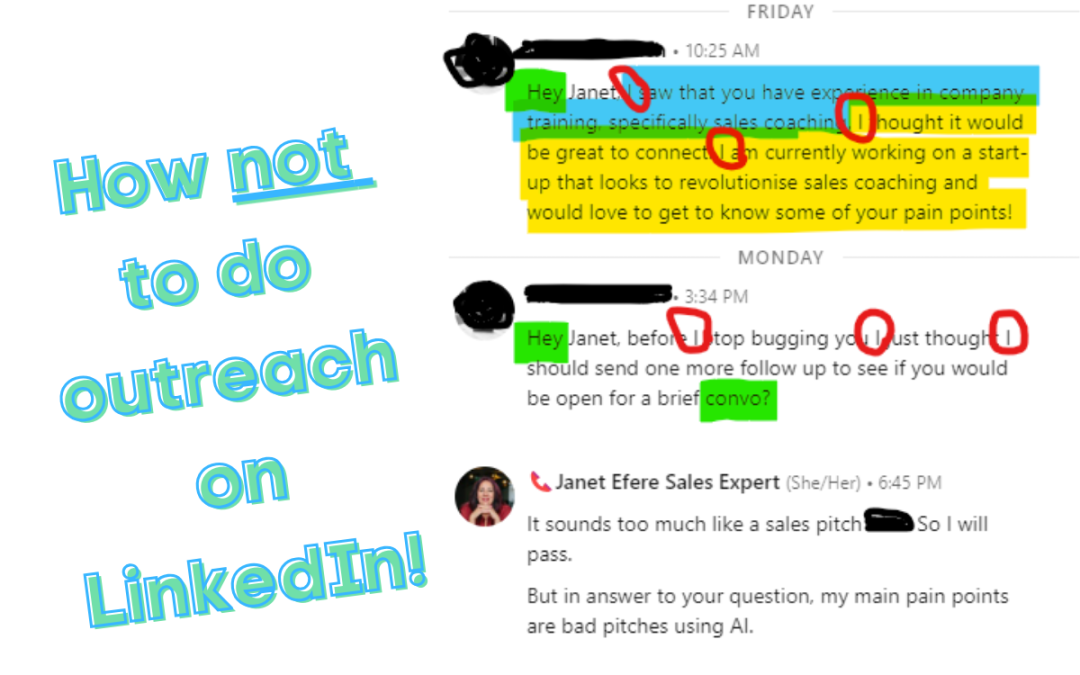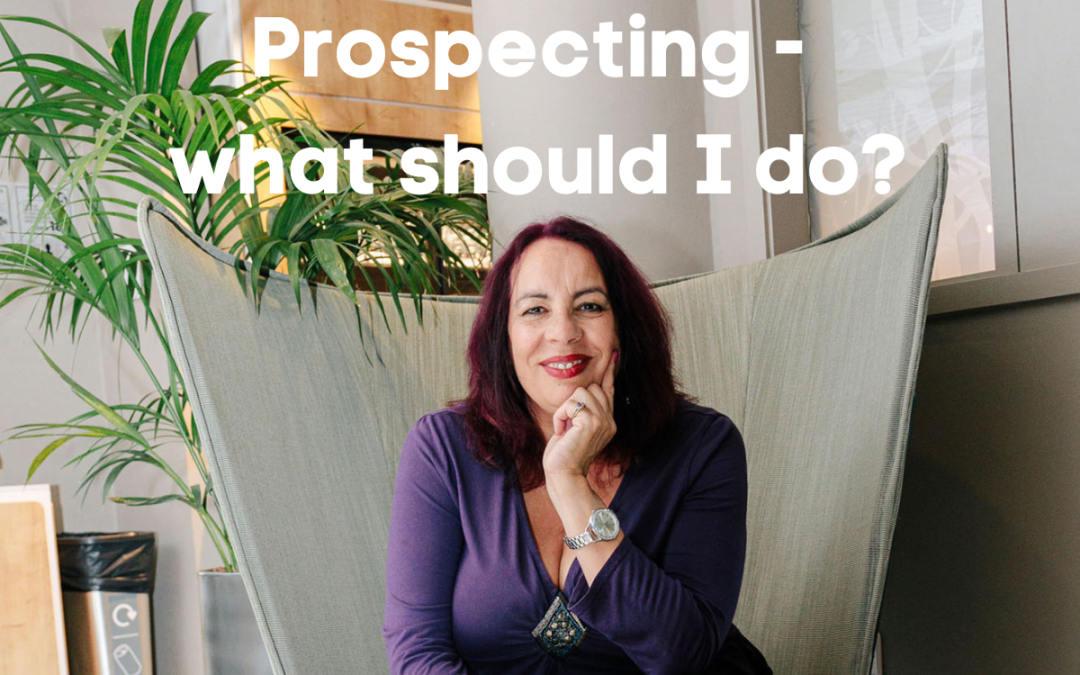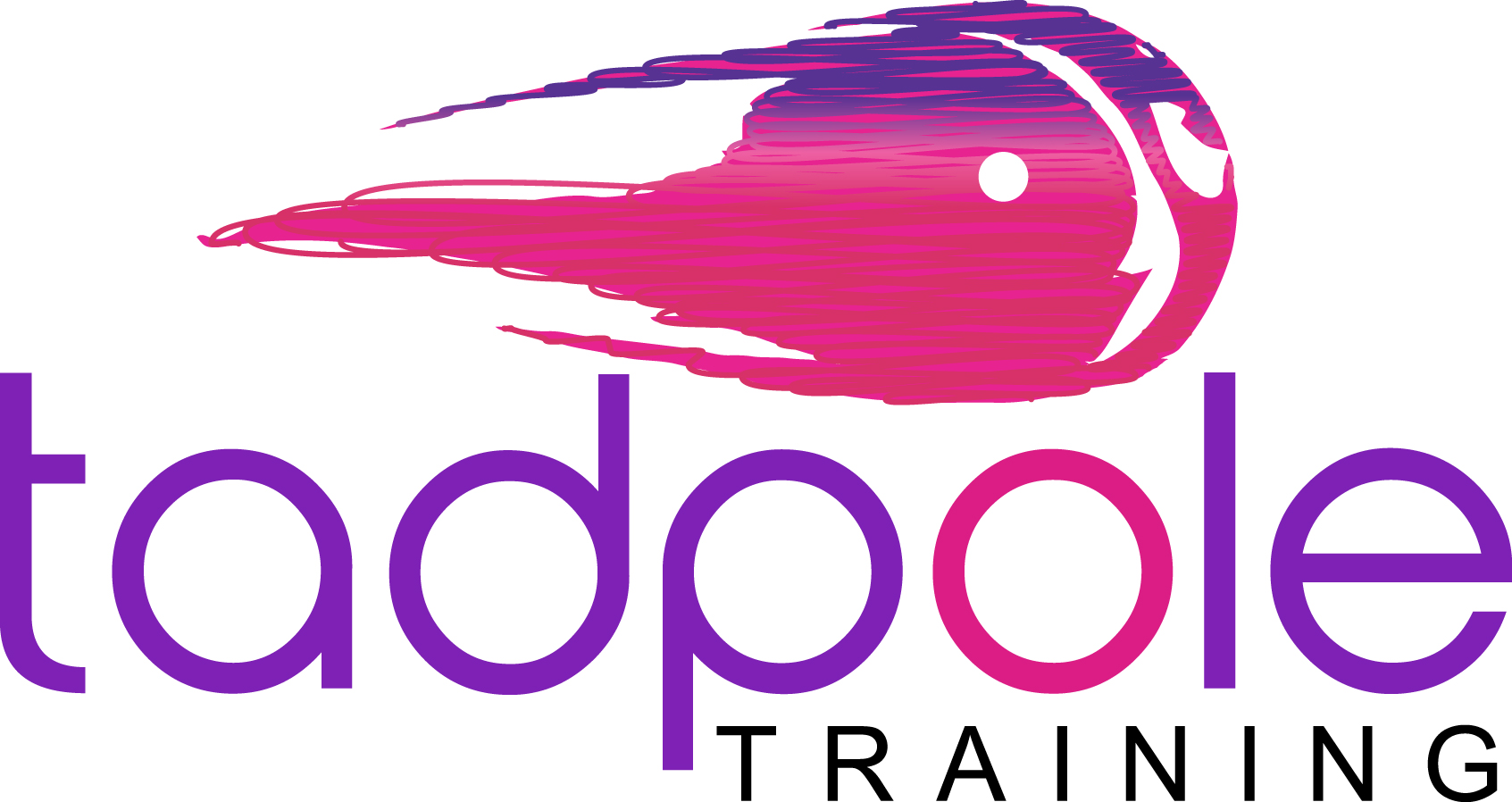
by Janet | Mar 13, 2024 | sales training
It might sound a bit weird, but studies have shown that faking laughter – for at least 60 seconds, can really cheer you up. Now, what’s all that got to do with sales and selling? Fair question. If you are in sales, you know how hard it can be –...

by Janet | Mar 13, 2024 | sales training
Unfortunately bad outreach on platforms like LinkedIn is getting more common, so what can you do about it? Well one of the first things is to make sure your team aren’t doing it! It would be easy, to just criticise people who pitch slap you on LinkedIn, so in an...

by Janet | Mar 12, 2024 | sales training
What can you do when you are not feeling motivated and you have the sales blues? Sales is a funny old job – we are, in many ways, doing something that is unnatural – trying to start conversations which seem counter-intuitive and (let’s face it) can...

by Janet | Mar 11, 2024 | sales training
Did you know that ghosting in sales is probably costing your sales people about a fifth of their time? Read on to discover how we know that and what you can do about it. So ghosting might be a thing now, but guess what? before the 2000s it wasn’t! Instead you...

by Janet | Mar 4, 2024 | negotiation, sales tips, sales training
How can elephants help you sell more? Well if you can get more elephants in your life, it can actually make a difference to your sales figures! (anyone who has been on my training probably knows what’s coming next….) You know the cliché of the salesperson?...

by Janet | Feb 23, 2024 | sales training
I made a prospecting call. He picks up and actually answers with his own name (that’s already a win!) I tell him my name and remind him how we know each other, BUT it is tremendously noisy. It sounds like it is a heated meeting! I say ‘it is super noisy...







